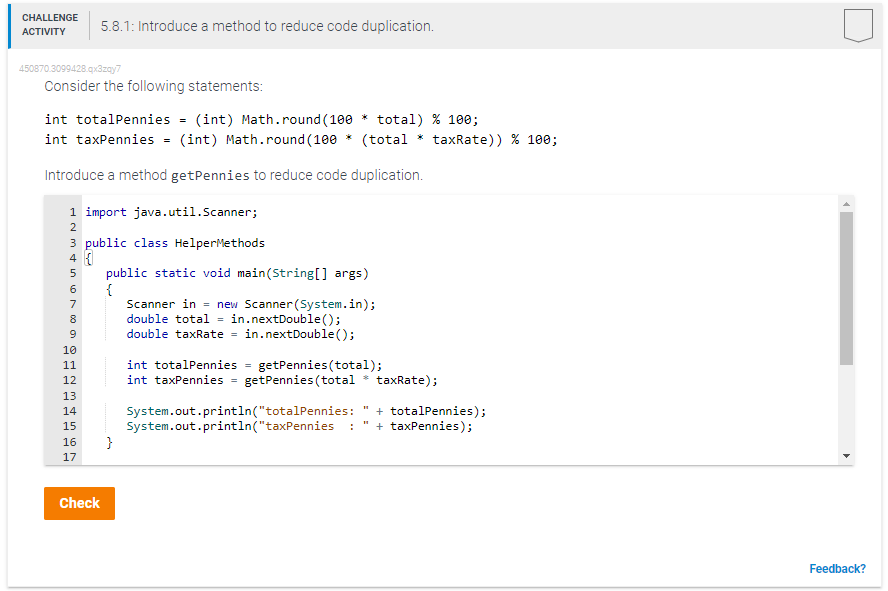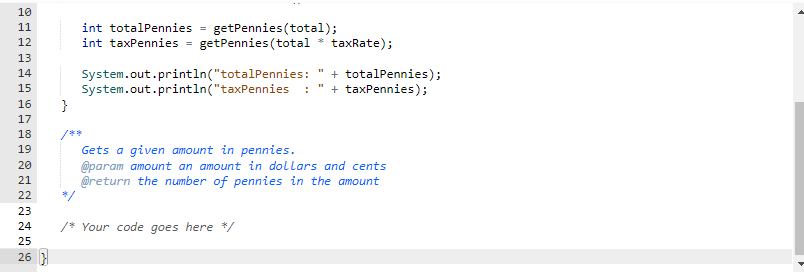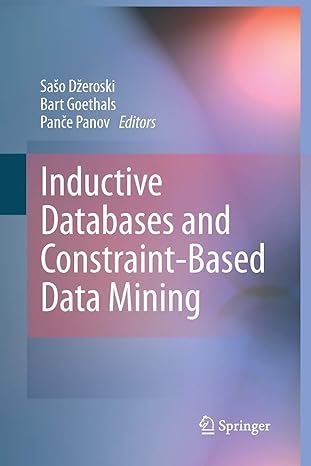Answered step by step
Verified Expert Solution
Question
1 Approved Answer
Consider the following statements: int totalPennies = (int) Math.round(100 * total) % 100; int taxPennies = (int) Math.round(100 * (total * taxRate)) % 100; Introduce
Consider the following statements:
int totalPennies = (int) Math.round(100 * total) % 100; int taxPennies = (int) Math.round(100 * (total * taxRate)) % 100;
Introduce a method getPennies to reduce code duplication.


Step by Step Solution
There are 3 Steps involved in it
Step: 1

Get Instant Access to Expert-Tailored Solutions
See step-by-step solutions with expert insights and AI powered tools for academic success
Step: 2

Step: 3

Ace Your Homework with AI
Get the answers you need in no time with our AI-driven, step-by-step assistance
Get Started


